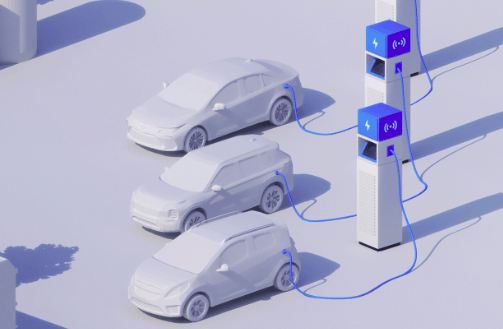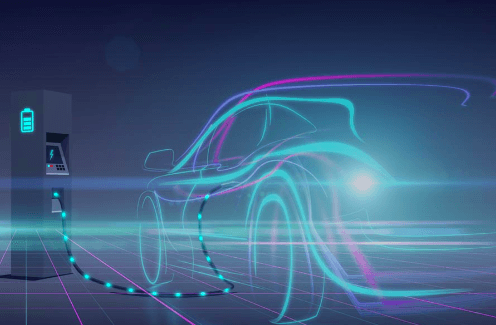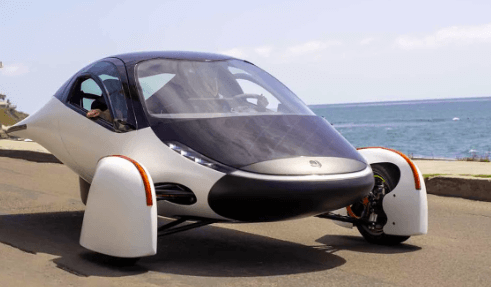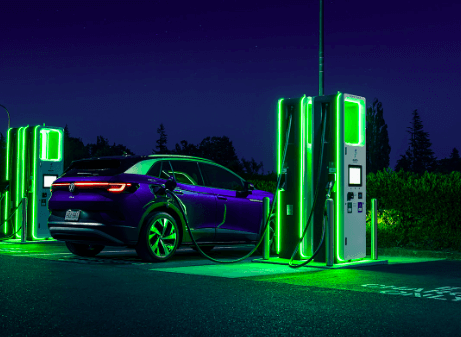
advantages and disadvantages of ev
What is an electric vehicle? What are the Advantages and Disadvantages of EVs
An electric vehicle (EV) is one that runs on electricity rather than a standard internal combustion engine. The energy stored in the battery powers the electric motor, which can be recharged by connecting the car into an electrical outlet or charging station. Electric vehicles emit no pollutants and are thought to be more ecologically friendly than regular gasoline vehicles. They may also have cheaper operating expenses because to the absence of the requirement for fuel, and they are often quieter when running.
What are the Types of EVs?
EVs are further categorized into several types:
BEVs (battery electric vehicles) –
These cars are entirely electric and lack an internal combustion engine.
They feature a big battery pack that stores electricity and can be recharged by connecting it into a power outlet or charging station.
PHEVs (plug-in hybrid electric cars) –
These cars are powered by an electric motor as well as an internal combustion engine.
They may be powered by electricity or gasoline, and the battery can be recharged by plugging it into a power outlet.
HEVs (hybrid electric vehicles) –
These cars also include an electric motor and an internal combustion engine, but the battery cannot be recharged from outside sources; instead, it is charged by the internal combustion engine or by regenerative braking.
EVs are gaining popularity owing to their environmental benefits, as they emit no emissions and may drastically reduce reliance on fossil fuels. They are also less expensive to operate and maintain than standard gasoline-powered automobiles.
Who invented the first electric car?

Thomas Davenport created the first electric vehicle (EV) in 1834.
Davenport, an American inventor and blacksmith, created the first electric motor that could run on a continuous power supply. He then utilized this motor to power a miniature model automobile, which is regarded as the world’s first electric vehicle. The vehicle was battery-powered and could only go limited distances at a moderate pace.
First EV to be used in a practical manner.
However, Thomas Davenport’s EV was not the first to be used in a practical manner. The first EV to be used in a practical manner was developed in 1884 by Thomas Parker, a British inventor.
He created an electric tricycle that was battery-powered and could reach speeds of 14 miles per hour.
It’s worth mentioning that there were a number of other innovators working on EVs around this time, and there’s some controversy regarding who truly invented the first EV. Thomas Davenport and Thomas Parker, on the other hand, are largely regarded as the forefathers of electric vehicle technology.
advantages and disadvantages of EV
What are the Advantages of EVs?

EVs provide a lot of environmental advantages over typical gasoline-powered automobiles.
These advantages include:
There are no tailpipe emissions:
EVs have no tailpipe emissions, which means they don’t release pollutants like carbon monoxide, nitrogen oxides, and particulate matter, which may be harmful to human health and the environment.
Reduced greenhouse gas emissions:
Because EVs are fueled by electricity, the source of the electricity needed to charge them is directly related to their greenhouse gas emissions.
EVs can have zero or near-zero greenhouse gas emissions when charged using renewable energy sources such as solar or wind power.
Lower reliance on fossil fuels:
Electric vehicles do not require gasoline or diesel fuel, reducing reliance on fossil fuels and perhaps helping to minimize the consequences of climate change.
Reduced energy consumption:
Electric cars utilize less energy to go the same distance as typical gasoline-powered vehicles. As a result, the car consumes less energy and emits less greenhouse gases during its lifetime.
Reduced maintenance costs:
Electric cars have fewer moving parts and require less maintenance than typical gasoline-powered vehicles, which can result in considerable cost savings during the vehicle’s life.
Silent operation:
EVs emit less noise pollution than regular gasoline-powered vehicles, which can improve urban quality of life while also lowering noise pollution.
It’s important to note that the environmental advantages of EVs differ depending on the type of power utilized to charge them. The environmental advantages will be decreased if the power used to charge the EV is derived from fossil fuels.
However, as the cost of batteries falls and renewable energy sources become more affordable, the environmental benefits of EVs become more apparent.
What are the Disdvantages of EV cars?

Although electric cars (EVs) have significant advantages over regular gasoline-powered vehicles, there are also drawbacks to consider:
Driving range is limited:
Most EVs now have a shorter driving range than regular gasoline-powered automobiles. This means they must be recharged more regularly, which might be inconvenient for long-distance travel.
Limited charging infrastructure availability:
While charging infrastructure is becoming more widely available, it is still scarce in some regions, making it difficult to locate a charging station when one is required.
Charge times are longer:
Charging an EV can be more time-consuming than refueling a standard gasoline-powered car, which might be problematic for certain users.
Higher initial expenditure:
EVs are often more expensive than standard gasoline-powered vehicles, which might be a deterrent for some buyers.
Battery deterioration:
The batteries in electric vehicles have a limited lifespan and can degrade over time, affecting the vehicle’s range and performance.
Recycling batteries:
Recycling EV batteries may be difficult and costly since the technology is still relatively new and the recycling procedure is not as well-established as it is for regular gasoline-powered vehicles.
Model availability is limited:
Some customers may discover that their selected car does not come in an electric form.
Cold weather impacts battery performance:
EVs’ range may be limited under cold weather conditions since the battery’s performance is impacted by temperature.
Many of these limitations are becoming less of a concern as technology progresses and the market for EVs expands.
For example, EV driving range is growing, charging infrastructure is becoming more widely available, and EV prices are falling. So it is important to know the advantages and disadvantages of EV before buying one.
Related post






